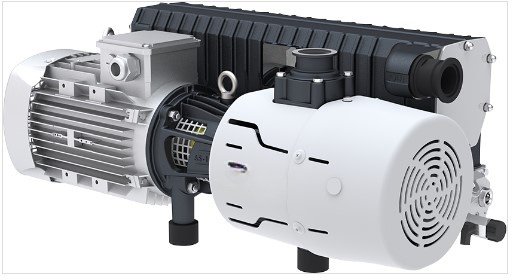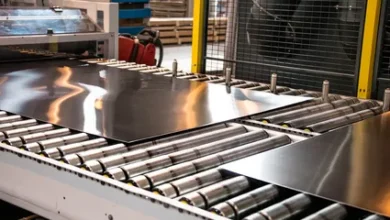
In the realm of industrial processes, the quest for efficiency is paramount. One area where efficiency plays a critical role is in the operation of oil-sealed vacuum pumps. These pumps serve as indispensable tools in various applications, ranging from pharmaceutical manufacturing to semiconductor production. Over the years, significant advancements have been made in oil-sealed vacuum pump technology, aiming to enhance efficiency, reliability, and performance.
Evolution of Oil-Sealed Vacuum Pumps
Oil-sealed vacuum pumps have a rich history dating back several decades. Initially developed for basic vacuum applications, these pumps have undergone significant evolution to meet the growing demands of modern industries. The earliest designs featured simple mechanisms utilizing oil to create the necessary vacuum pressure. However, as technology progressed, so did the sophistication of these pumps.
Introduction of Innovative Materials
One notable advancement in oil-sealed vacuum pump technology is the introduction of innovative materials. Traditionally, pumps relied on metallic components for their construction. However, the emergence of high-performance polymers and composite materials has revolutionized pump design. These materials offer superior durability, corrosion resistance, and thermal stability, contributing to the overall efficiency and longevity of the pump.
Enhanced Lubrication Systems
Efficient lubrication is essential for the smooth operation of oil-sealed vacuum pumps. In the past, conventional lubrication systems required frequent maintenance and oil changes, leading to downtime and increased operational costs. However, recent advancements have led to the development of enhanced lubrication systems that offer extended oil life and reduced maintenance requirements. These systems utilize advanced filtration techniques and additives to prolong the lifespan of the lubricating oil, thereby optimizing pump performance.
Integration of Intelligent Controls
Another significant advancement in oil-sealed vacuum pump technology is the integration of intelligent controls. Modern pumps are equipped with sophisticated control systems that monitor various parameters such as temperature, pressure, and vibration in real time. This data is then analyzed to optimize pump performance, prevent potential issues, and minimize energy consumption. By leveraging automation and predictive maintenance algorithms, operators can ensure optimal efficiency and reliability of their vacuum systems.
Efficiency-Driven Design
Efficiency is at the forefront of oil-sealed vacuum pump design. Manufacturers are continually innovating to develop pumps that deliver maximum performance while minimizing energy consumption and environmental impact. One approach to achieving this is through the optimization of pump geometry and internal components. By fine-tuning the design, engineers can minimize energy losses and improve overall efficiency.
Advantages of Oil-Sealed Vacuum Pumps
Oil-sealed vacuum pumps offer several advantages over alternative vacuum technologies. Their robust construction, reliable performance, and ability to handle a wide range of operating conditions make them ideal for diverse industrial applications. Additionally, these pumps can achieve high vacuum levels, ensuring precise process control and product quality. With the latest advancements in technology, oil-sealed vacuum pumps continue to set the standard for efficiency and reliability in vacuum systems.
Future Trends and Outlook
Prospective advancements and patterns abound for oil-sealed vacuum pump technology in the future. The continuous focus on environmental responsibility and sustainability is one important trend. Manufacturers are continuously investigating ways to use eco-friendly materials, energy-efficient designs, and alternative lubricants to lessen the environmental impact of oil-sealed vacuum pumps.
Moreover, the amalgamation of digitization and Industry 4.0 tenets is prepared to revolutionize the vacuum pump operations domain. Real-time pump performance optimization, predictive maintenance, and remote monitoring will be made possible by smart sensors, networking, and data analytics capabilities. This reduces operating expenses and downtime while simultaneously increasing efficiency.
Additionally, the need for flexibility and customization is propelling advancements in oil-sealed vacuum pump technology. Manufacturers are catering to the specific needs of many sectors and applications by providing modular designs and features that may be customized. Customizable solutions enable operators to maximize efficiency and performance by meeting unique installation limits or responding to changing process conditions.
Furthermore, research and development endeavors are concentrated on expanding the limits of vacuum technology to attain even greater levels of effectiveness and efficiency. This covers developments in computational modeling, precision engineering, and materials science. As long as they keep pushing the boundaries of innovation, oil-sealed vacuum pumps will be essential to the advancement of numerous industries.
Conclusion
In conclusion, advancements in oil-sealed vacuum pump technology have revolutionized the efficiency and performance of industrial vacuum systems. From innovative materials and enhanced lubrication systems to intelligent controls and efficiency-driven design, these pumps have evolved to meet the ever-increasing demands of modern industries. By embracing these advancements, operators can unlock new levels of efficiency, reliability, and productivity in their operations. As technology continues to progress, the future looks promising for oil-sealed vacuum pumps and the industries they serve.



